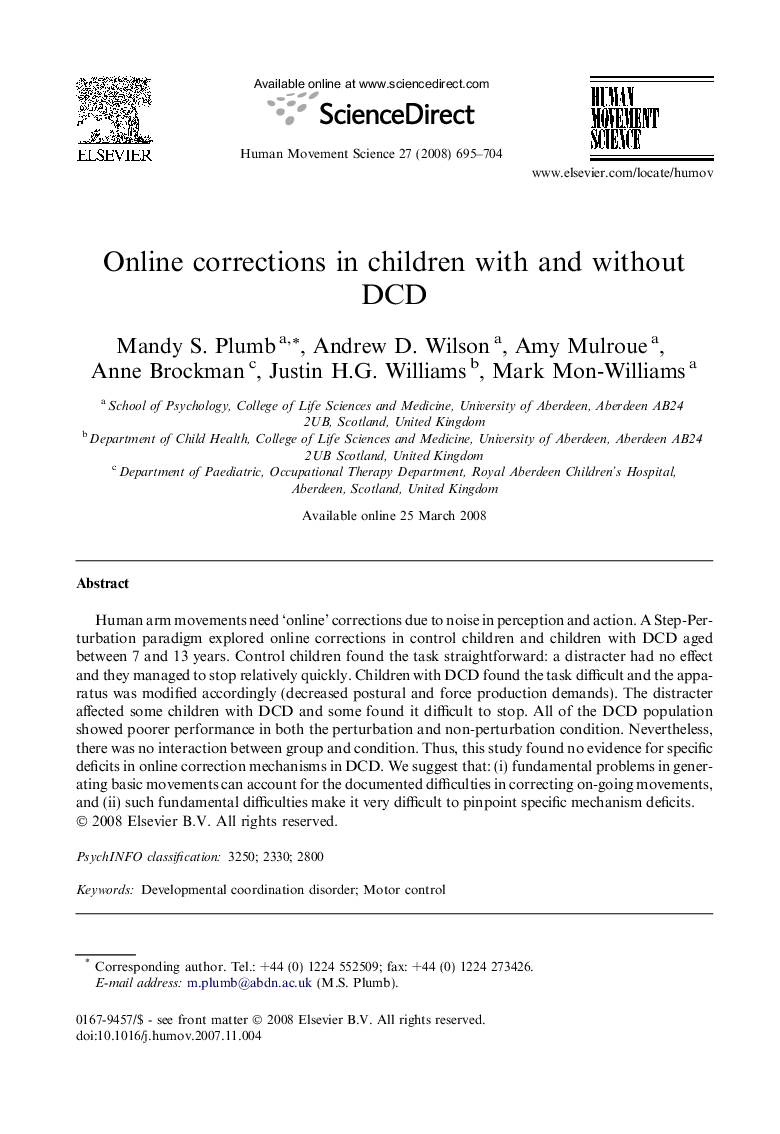| Article ID | Journal | Published Year | Pages | File Type |
|---|---|---|---|---|
| 928884 | Human Movement Science | 2008 | 10 Pages |
Human arm movements need ‘online’ corrections due to noise in perception and action. A Step-Perturbation paradigm explored online corrections in control children and children with DCD aged between 7 and 13 years. Control children found the task straightforward: a distracter had no effect and they managed to stop relatively quickly. Children with DCD found the task difficult and the apparatus was modified accordingly (decreased postural and force production demands). The distracter affected some children with DCD and some found it difficult to stop. All of the DCD population showed poorer performance in both the perturbation and non-perturbation condition. Nevertheless, there was no interaction between group and condition. Thus, this study found no evidence for specific deficits in online correction mechanisms in DCD. We suggest that: (i) fundamental problems in generating basic movements can account for the documented difficulties in correcting on-going movements, and (ii) such fundamental difficulties make it very difficult to pinpoint specific mechanism deficits.
